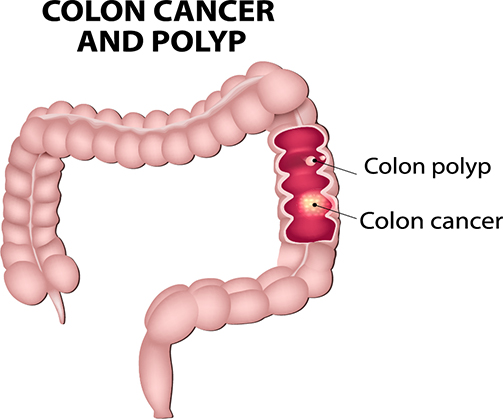Rectal and Colon Cancer
At Colorectal Surgery Services Our highly trained surgeons and medical professionals specialize in the diagnosis, evaluation and treatment of patients with cancer of the anus, colon and rectum.
Colorectal Surgery Services offers a full spectrum of colon and rectal cancer care including preventive care (colonoscopy screening), diagnosis, treatment and follow-up care. We develop personalized patient treatment plans, including staging of the cancer with endorectal ultrasound, MRI or colonoscopy and surgery.

Anatomy
Colorectal cancer occurs in the colon or the rectum, the end portions of the digestive tract. The digestive tract begins with the mouth, esophagus, and stomach where food is ingested and then broken down. The contents of the stomach are then delivered to the small intestine where absorption of nutrients occurs. The small intestine leads to the colon and rectum, which are collectively referred to as the large intestine. The function of the colon is to absorb water, salts, and fatty acids from the stool. The rectum serves as a reservoir for stool until an appropriate time for having a bowel movement. Finally, stool is expelled through the anus. Combined, the colon and rectum measure 5-8 feet in length.
Polyp Progression
Colorectal cancer usually develops from a noncancerous polyp or growth. Some polyps will go on to develop abnormalities that eventually lead to cancer formation. This progression from a benign growth to a cancer is thought to take close to 10 years to occur. A colonoscopy is a recommended procedure that allows the entire colon and rectum to be evaluated and polyps to be removed. Theoretically, if a noncancerous polyp is removed in the early stages of its progression, cancer can be prevented. Early detection of polyps and cancers and advancements in treatment have led to improved survival rates for patients who have been diagnosed with colorectal cancer.

Screening
Routine screening is recommended for everyone age 50 or older, unless personal or family health history suggests an earlier evaluation. Several types of screening tests exist: fecal occult blood test (FOBT), fecal immunochemical test (FIT), double-contrast barium enema, flexible sigmoidoscopy, and colonoscopy. Discuss with your physician which test is best for you.
Stages of Colorectal Cancer
There are five basic stages of colorectal cancer: 0, I, II, III, and IV.
Stage 0: The cancer resides only in the inner surface of the colon.
Stage I: The cancer has grown into the wall, but has not spread beyond the wall. Stage II: The cancer has grown through the wall and possibly the nearby tissues, but has not spread into the lymph nodes.
Stage III: The cancer has grown through the wall, possibly the nearby tissues, as well as the lymph nodes.
Stage IV: The cancer has spread to other parts of the body (i.e. liver, lungs, bone, brain, or kidney).
Determining the degree of spread of tumor helps establish a “stage” of the cancer. Colorectal cancer is staged on the basis of:
1. The depth of invasion of the tumor into the bowel wall.
2. The presence of tumor within the lymph nodes
3. The presence of tumor in distant locations (i.e. liver or lung)
To evaluate whether tumor is present in a distant location (metastasis), pre-treatment imaging tests will be ordered. Such tests may include: CT scan, MRI, and PET scan. Descriptions of each of these tests are available in the glossary. Blood tests, including a tumor marker (CEA- carcinoembryonic antigen) level, will be drawn.
An endorectal ultrasound (ERUS) may be ordered in the case of rectal cancer to assess the depth of invasion into the wall of the rectum and lymph node involvement. This test is usually performed by a colon and rectal surgeon who inserts a small ultrasound probe into the rectum to obtain images of the cancer.
Treatment of Colorectal Cancer
The choice of treatment depends mainly on the location of the tumor- colon or rectum- and the stage of the disease. Although similarities exist for the treatment of colon cancer versus the treatment of rectal cancer, there may also be differences. Treatment may include surgery, chemotherapy, or radiation therapy.
For more information on the best South Texas colorectal surgeons, or to schedule a second opinion, please contact our Concierge Patient Coordinator at (210) 490-2828 or toll free at (866) 259-3778.